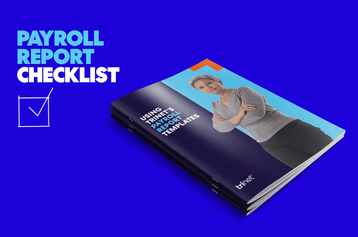
According to the Tax Foundation, small businesses pay or remit more than 93% of all U.S. taxes. At the same time, small employers can count on a long list potential deductions to reduce the financial burden. To get you started on your tax preparation for your 2022 taxes and beyond, here is the mega-list of standard deductions and additional tax credits to consider:
The 2023 tax deduction cheat sheet for business owners
There are several types of deductions that business owners can leverage for their taxes. The specific amounts you can deduct will depend on your specific business. But it’s important to leave no stone unturned when preparing for April.
Advertising, marketing, and promotion costs
Costs associated with marketing, advertising, and otherwise promoting your business are all tax-deductible. This includes the following expenses:
- Website hosting and domain
- Website design, themes, plugins, stock photos, fonts, and other related costs
- Online ad spend
- Advertising costs in newspapers, magazines, and on websites
- Sponsored post costs
- Influencer costs
- Graphic design software subscription costs
- Marketing software
Auto-related expenses
- Purchasing a company car
- Vehicle expenses, including gas and repairs
- Mileage deductions
Bank, commissions, professional, and other fees
- Bank fees, such as service fees, ATM fees, overdraft fees, deposit fees, credit card annual fees, card late payment fees, and wire transfer fees.
- E-commerce fees paid to online sellers such as Amazon, Etsy, eBay, and other marketplaces
- Merchant processing fees from using platforms like Stripe, PayPal, Authorize.net, and others
- Professional consultation fees, including working with lawyers, accountants, and business consultants, can all be deducted.
Bad debt
Unfortunately, sometimes clients don’t pay invoices or pay back their loans, thus creating bad debt. However, if these debts can be directly tied to a business expense, these expenses can be used as deductions.
Charity
Contributions to a 501(c)(3) non-profit can be used as a tax deduction. However, you will need to ensure you get a donation receipt from said organization.
Continuing education
- Books, industry-specific magazine subscriptions, reference materials, audiobooks, and other business-related media
- Online courses, mastermind groups, coaching, conferences, lectures, and other similar events can be covered. This includes courses taken for continuing education requirements mandated to maintain licenses and certifications.
Cost of goods sold (COGS)
You can deduct certain expenses that go into manufacturing or selling products. This includes the cost of raw materials, labor, and inventory.
Employee deductions
- Payroll software or service provider fees
- Local, state, and federal payroll taxes
- Wages, salaries, employee commissions
- Employee benefits, including 401(k)s, life insurance, childcare, disability insurance, and bonuses
- Payments made to subcontractors or independent contractors
- Meals for employee meetings or work shifts, 50% deductible
Depreciation costs
It’s possible to deduct depreciation as well, and this applies to furniture, equipment, and any other business asset that loses its value over time.
There are a few different ways to calculate depreciation, and you’ll want to review options with your accountant to see which one is best for you this year. Some of the methods include:
- Section 179 allows business owners to deduct up to $1,080,000 of new or used property placed in service during the tax year to be deducted.
- The de minimis safe harbor lets business owners deduct assets with a fair market value less than $2,500.
- Bonus depreciation ensures that businesses can deduct 100% of the costs for equipment to be expensed in the first year.
Health and business insurance
- Auto insurance for business vehicles
- Business, professional, and liability insurance
- Workers’ compensation insurance
- Malpractice insurance
- Property insurance
- General liability insurance
- Business owners and self-employed individuals can deduct 100% of their health insurance premiums
Licenses, permits, certifications, and legal documents
- Purchasing contract, proposal, and other legal template documents
- Costs related to getting licenses, permits, and certificates relevant to your business
Loans
- Interest payments made on business credit cards and loans
Office expenses
- Rent, leasing, or co-working space subscriptions
- Office repairs
- Gifts to clients
- Miscellaneous office supplies and software as long as they are day-to-day costs
Taxes
Taxes count towards your deductions, including:- Federal tax
- State tax
- Local tax
- Sales tax
- FICA
- FUTA
- State unemployment taxes
- Self-employment taxes
Travel
- Airfare, ground transportation, public transportation
- Lodging, such as hotels or Airbnb
- Meals, 50% deductible
Utilities
- Internet costs
- Gas, water, electric
- VoIP, Skype, and phone number costs
More tax credits for business owners to consider
After the standard deductions, many business owners can also take advantage of specific tax credits. It’s important to remember that many tax credits require strict eligibility requirements and have deduction limits. But if you qualify, these options can be a great way to save.
1. Disabled access credit
With the Americans with Disabilities Act (ADA), employers are encouraged to make their workplace accessible for customers and employees. If you make less than $1 million per year or have fewer than 30 full-time employees, you could potentially qualify for up to $10,250 in credits for expenses related to accessibility. Check out Form 8826 for specific instructions.
2. Family and Medical Leave Act (FMLA) credits
If you have employees that took FMLA leave during the year, you may be eligible for a 12.5% to 25% tax credit. There are several eligibility requirements, which you can see on the IRS site under Form 8994.
3. Employee retention credit
Small businesses can still apply for an ERC credit until 2024 using Form 941.
4. General business tax credit
Form 3800 gives employers a general application for multiple tax credits. You can think of this form as a general overview for your specific business credit deductions, since you will need to keep separate accounting for each credit. Some included opportunities on this form are the work opportunity credit, new markets credit, and biodiesel fuel credit.
5. Research and development credit
Businesses focused on R&D activities may be able to get 20% of their activities covered under
6. Small business employee healthcare premiums
Listed under Form 8941, small employers can get a credit up to 50% of the healthcare premiums paid for employees. To qualify, employers must use the SHOP Marketplace, employee fewer than 25 employees, and the average wage must be less than $56,000.
7. Start-up credit
If you are a start-up, you may be eligible for this credit, which covers $500 or 50% of your start-up costs during the first 3 years of your business. Eligible businesses have fewer than 100 employees, their workers earn at least $5,000, and they do not have a 401(k)-qualifying plan for 3 years. Get the full details under Form 8881.
8. Work opportunity credit
If you have hired people who have been incarcerated, unemployed veterans, long-term family assistance recipients, or youth in empowerment zones, you may be eligible for this credit under Form 5884. The specific credits are calculated based on employee wages, so you’ll want to discuss this topic more with your tax professional.
IRS updates for the 2023 tax season
The Inflation Reduction Act of 2022 aims to provide some relief during the 2023 tax season. In addition to substantive increases in the income bracket, many credit amounts were increased. Some examples include:
- The limitation for employee salary reductions for contributions to health flexible spending arrangements will increase to $3,050.
- For cafeteria plans that allow the carryover of unused amounts, the maximum carryover amount is now $610.
- The qualified transportation fringe benefit and the monthly limitation for qualified parking increases to $300
More tips for business owners when filing taxes
Before tax season gets too hot, there are a few things that small business owners can do to prep for a seamless filing and max their deductions:
- Book an appointment with your tax professional, whether they are an in-house employee or external consultant, as early as possible.
- Check in with HR, which will have access to the annual payroll taxes and employee W-2 and W-9 forms.
- Review your business structure to determine whether or not a different one makes sense.
- Collect receipts, travel reimbursements, vendor payments, and all accounts payable data from your accounting system or team.
- Conduct spot audits of financial documents going forward to ensure proper record keeping.
This communication is for informational purposes only; it is not legal, tax or accounting advice; and is not an offer to sell, buy or procure insurance.
This post may contain hyperlinks to websites operated by parties other than TriNet. Such hyperlinks are provided for reference only. TriNet does not control such web sites and is not responsible for their content. Inclusion of such hyperlinks on TriNet.com does not necessarily imply any endorsement of the material on such websites or association with their operators.






